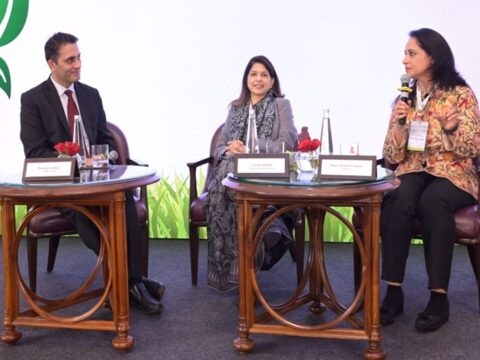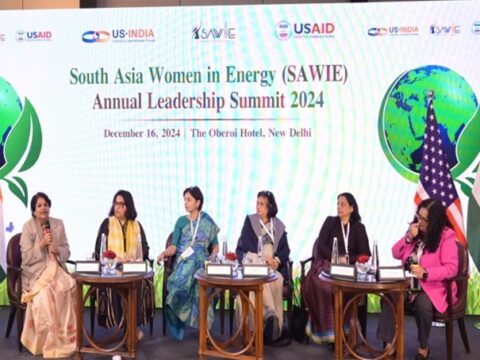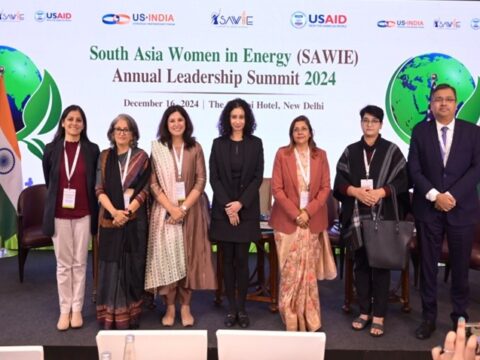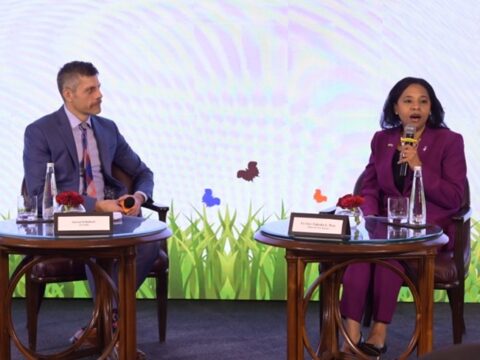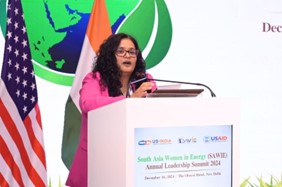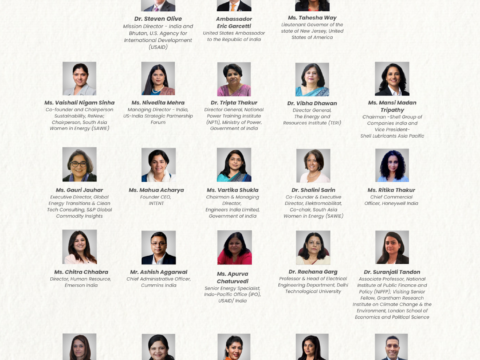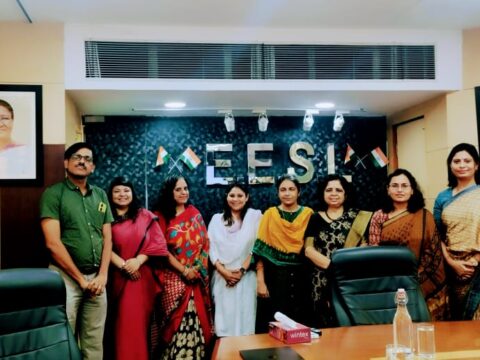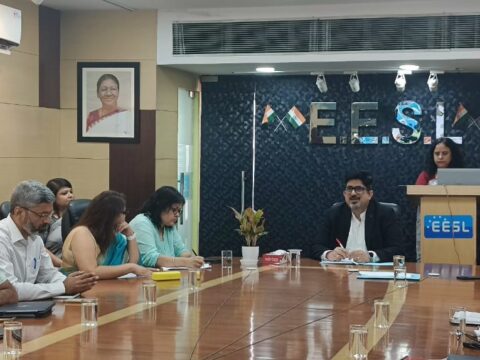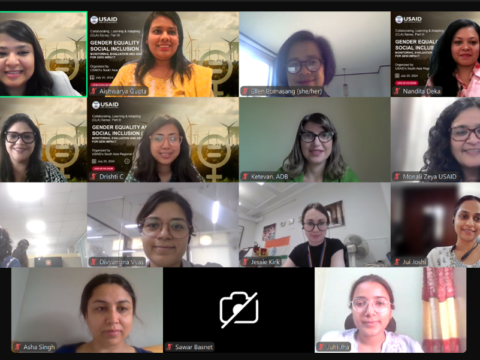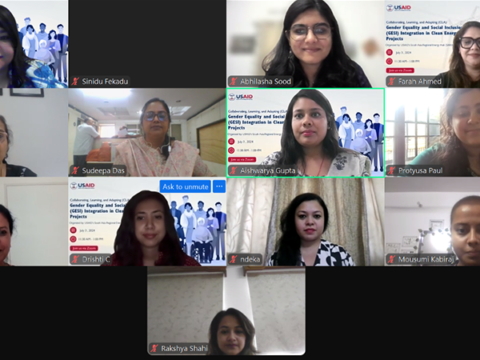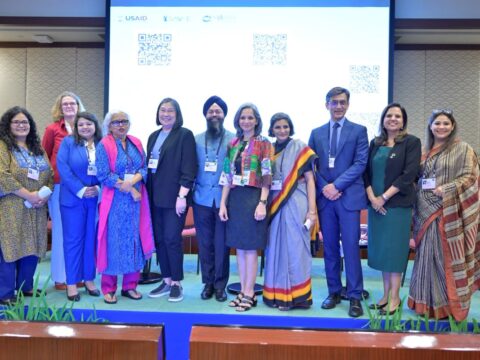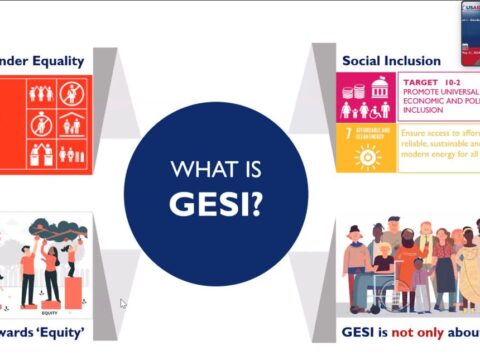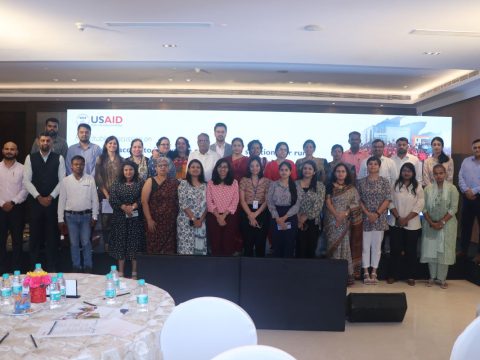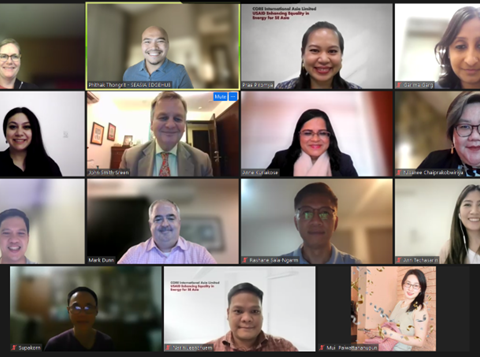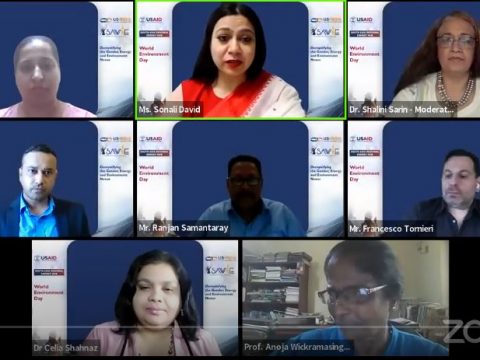GESI
December 23, 2024
US India Strategic Partnership Forum (USISPF), in partnership with US Agency for International Development (USAID), successfully hosted the third edition of the South Asia Women in Energy (SAWIE) Annual Leadership […]
September 24, 2024
Clean energy is playing a crucial role in driving development and improving living standards in South Asia. However, this transition is often accompanied by significant gender inequalities, limiting opportunities for […]
September 5, 2024
In a powerful stride towards a gender-inclusive clean energy future, USAID’s South Asia Regional Energy Partnership (SAREP) Program organized the Gender Equality and Social Inclusion (GESI) Assessment Workshop with Energy […]
July 29, 2024
USAID’s South Asia Regional Energy Partnership (SAREP), through its South Asia Regional Energy Hub (SAREH), is committed to advancing affordable, secure, reliable, and sustainable energy access across the region. Recognizing […]
July 4, 2024
To advance Gender Equality and Social Inclusion (GESI) integration in the clean energy ecosystem, USAID, through the South Asia Regional Energy Hub (SAREH) program, hosted the second part of the […]
June 12, 2024
The Asia Clean Energy Forum (ACEF) 2024 featured a pivotal spotlight session on June 6, 2024, at the Asian Development Bank Headquarters in Manila, Philippines. Titled “Women Bridging the Clean […]
May 27, 2024
To advance Gender Equality and Social Inclusion (GESI) and Diversity, Equity, and Inclusion (DEI) in the energy sector, USAID, through the South Asia Regional Energy Hub (SAREH) program, hosted an […]
March 14, 2024
International Women’s Day 2024: Promoting Gender Parity & Inclusion in the South Asian Energy Sector
In celebration of International Women’s Day (IWD) 2024, the United States Agency for International Development (USAID) through the South Asia Regional Energy Hub (SAREH) (joined forces with South Asia Women […]
July 18, 2023
USAID’s flagship regional energy program, The South Asia Regional Energy Partnership (SAREP) emphasizes on gender equality and social inclusion as a cross cutting theme to meet its technical objectives of […]
May 20, 2023
The South Asia Regional Conference on ‘Advancing Women’s Leadership in Climate Action’ was held in New Delhi on May 11, 2023. The conference, under the aegis of the United States […]
September 27, 2022
Gender and Inclusion experts from USAID programs in South Asia and Southeast Asia and the World Bank show cased the gaps and solutions that the energy sector experiences from a […]
August 2, 2022
This was the first event organized under SAREP’s gender equality and social inclusion (GESI) umbrella and hosted by SAREH. This webinar organized on June 10, 202, commemorated World Environment Day. […]







